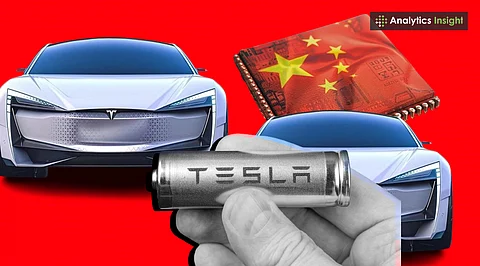

Tesla has taken a bold step toward reshaping its energy business with a $4.3 billion battery supply contract with LG Energy Solution. This deal is one of the largest in the energy storage sector, securing lithium-iron-phosphate (LFP) battery cells from LG's Michigan-based manufacturing plant.
Production will start in 2027 and continue through 2030, with the option to extend it by seven more years. The batteries will support Tesla's stationary storage products, such as Powerwall and Megapack.
The partnership signifies Tesla’s shift to reduce its dependence on Chinese-made batteries. US tariffs have made Chinese LFP cells more expensive, prompting the company to build a more domestic and resilient supply chain.
CFOs and executives have repeatedly raised concerns over supply chain pressures and price volatility from foreign imports. This new agreement marks a response to those growing concerns.
LFP batteries are more stable and affordable, even though they offer a lower energy density compared to other cell-material combinations like nickel-manganese-cobalt. Still, they fit perfectly into Tesla’s storage segment, which demands reliability and long life more than compact size.
Tesla has invested in its own lithium refining projects but continues to secure external supply through strategic agreements like this one.
LG Energy Solution benefits equally from this milestone contract. The company, already one of the world’s biggest battery suppliers, is building a strong presence in the US market.
Its Michigan plant began LFP battery production earlier this year and is now central to this Tesla deal. The contract value surpasses LG’s recent quarterly earnings, underlining its significance for the firm’s growth plans.
The wider context also matters. US is now encouraging companies to bring more manufacturing home under the Inflation Reduction Act. It includes lucrative tax incentives for battery production and clean energy technologies. Tesla’s move fits right into that policy shift. It also reflects rising global competition in the battery market, as companies scramble to secure stable and local supply.
This contract not only secures Tesla’s energy ambitions but also signals a larger industrial realignment. The energy storage market continues to grow as utilities, homes, and businesses invest in backup and grid solutions.
By obtaining LFP batteries from a US partner, Tesla strengthens both its market position and its ability to handle political and economic shifts.
The battery deal reshapes future supply routes in the electric vehicle industry, gives LG Energy a new growth engine, and helps Tesla build cleaner, stronger, and more reliable storage solutions without relying on China.
Also Read – Elon Musk's Tesla Loses $984.73 Billion in Market Cap: What's Next?
